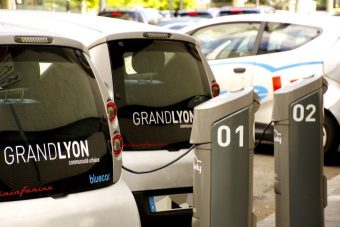
Insurance rules for self-driving cars and measures to improve the provision of electric vehicle charge points have been set out by the government in a new Bill aimed at making the UK a “world leader” in clean transport technologies.
Published for the first time yesterday, the Vehicle Technology and Aviation Bill aims to break down some of the barriers which the Department for Transport (DfT) said could limit companies from testing new low emission vehicle technologies.
Measures in the Bill – such as forcing motorway services and large fuel retailers to provide EV charge points and hydrogen refuelling stations – would help ensure easier access to infrastructure for the growing market for electric vehicles, according to the government.
Other measures in the Bill are also designed to make information about the location and availability of charging stations more openly accessible for EV drivers, following a consultation on EV charging infrastructure last autumn.
Transport Minister John Hayes said that to encourage the take up of EVs the associated infrastructure needs to become more widespread than the 11,000 charging points currently in place in the UK. “If we are to accelerate the use of electric vehicles we must take action now and be ready to take more action later,” he said in a statement. “We are determined to do all we can to make electric vehicles work for everyone and these new laws will help make this a reality.”
However Steve Nash, CEO of the Institute of the Motor Industry, said that the measures in the Bill weren’t enough to encourage EV uptake, highlighting research by the organisation which found 40 per cent of people were unwilling or unable to pay the insurance premiums currently levied on battery cars. Moreover, he said there was still a “serious” gap in expertise needed to foster the wider rollout of plug-in car infrastructure.
“It’s not rocket science,” said Nash. “Small businesses are uncertain about future demand for work on electrified cars and won’t risk investing in the skills they need without help from the government. This means insurance and servicing costs will stay out of the reach of many drivers and car buyers will still be attracted to diesel cars as the most fuel efficient alternative, keeping them on our roads in significant numbers for decades to come.”
Elsewhere in the Bill introduced yesterday, it seeks to improve protection for autonomous vehicle drivers by enabling them to purchase a single insurance product to cover them while they are driving, as well as when the car is in self-driving mode.
The rules would also give Secretary of State for Transport Chris Grayling the power to classify which vehicles are ‘automated’ and therefore subject to the new insurance arrangement.
Having consulted on the issue of insurance for self-driving cars back in September, DfT said the new rules would mean innocent victims involved in a collision with an automated vehicle would have “quick and easy access” to compensation.
It follows the high profile fatal crash of a Tesla self-driving vehicle in the USA last year, which raised concerns about the safety of the technology, although the EV company blamed the incident on human error.
David Williams, head of underwriting at insurance firm AXA UK, said the measures would help provide clarity to insurers and also help encourage early adoption of some “really impressive technology”.
“The vast majority of accidents are caused by human error and we see automated vehicles having a massive impact, reducing the number and severity of accidents,” Williams said in a statement. “As well as making our roads safer, insurance premiums are based on the cost of claims and therefore we expect substantially reduced premiums to follow.”
Source: businessgreen.com

